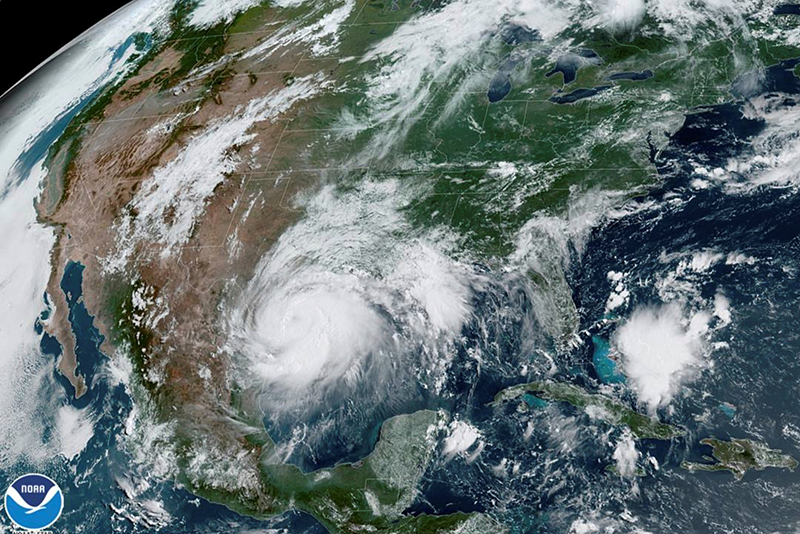HOUSTON — Hurricane Hanna strengthened on Saturday as it made landfall on the Texas coast and threatened an area of the country that has been battered by the COVID-19 pandemic in recent weeks.
Hurricane-force winds punished the southeastern Texas coast, ripping piers out of bays and tearing roofs off homes. The National Hurricane Center (NHC) warned that a potentially deadly storm surge was likely across a broad swath of land. Hanna made landfall on Padre Island Saturday afternoon.
Hanna, a Category 1 hurricane on the five-step Saffir-Simpson scale, came ashore on Padre Island and later made a second landfall in Eastern Kennedy County, Texas.
It is forecast to weaken as it moves inland over south Texas tonight and into northeastern Mexico on Sunday, but it could spawn powerful tornadoes on the coastal plains.
“Any hurricane is an enormous challenge,” Texas Governor Greg Abbott said during a Saturday briefing about the storm. “This challenge is complicated and made even more severe, seeing that it’s sweeping through an area that is the most challenged area in the state for COVID-19.”
Abbott issued a disaster declaration for 32 counties in Texas that are in the storm’s path.

Hanna is the first hurricane of the 2020 Atlantic season and strikes as the coronavirus pandemic complicates everything from figuring out how to social distance in emergency shelters to finding bed space for anyone hurt in the storm in hospitals that are packed with COVID-19 patients.
On Saturday afternoon, the storm was located about 70 miles (115 km) south of Corpus Christi in Texas, packing maximum sustained winds of 90 miles per hour (145 kph), the NHC said.
“The combination of a dangerous storm surge and the tide will cause normally dry areas near the coast to be flooded by rising waters moving inland from the shoreline,” the Miami-based forecaster said.
Hanna could bring flash flooding, with up to 15 inches (38 cm) of rain in pockets of southern Texas and northeastern Mexico.
The storm is not expected to affect offshore oil and gas production. Energy companies have not evacuated workers or shut down production from their Gulf of Mexico platforms because of Hanna.
The Texas area struck by Hanna has struggled to contain outbreaks of COVID-19 in recent weeks. Cases along the state’s coast have soared into the tens of thousands, and more than 400 people in Corpus Christi’s city of 325,000 were hospitalized with the novel coronavirus on Friday, according to city data.
Corpus Christi Mayor Joe McComb warned residents who live in flood-prone areas to heed coronavirus precautions when deciding to evacuate.
“Take several masks with you because you might be there a couple days if you’re in a flood area,” McComb said, according to the Tribune. “We don’t want to expose anyone during this storm. … Even when you’re in the house, I recommend wearing a mask if you’re in crowded conditions.”



